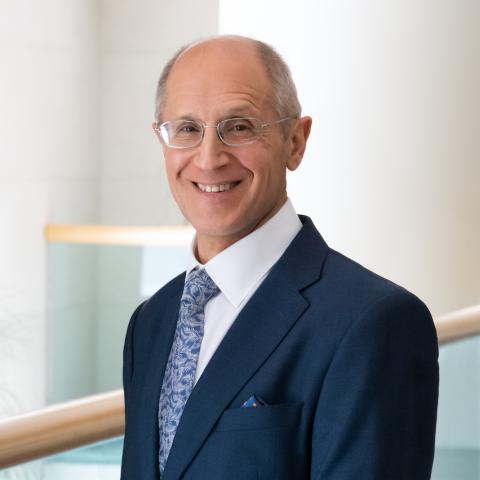Welcome to the fall of the 2022-2023 academic year for the School of Medicine.
Having a day off (Labor Day) can be a dangerous thing for me. It allowed me to catch up on my reading and, for once in a great while, give some uninterrupted thought to some of our strategic efforts across the School of Medicine.
This day off comes in the week following our annual external advisory committee meeting for the Case Comprehensive Cancer Center—when we bring in 13 to 15 experts from across the country to give us a critical assessment of our science, organization and forward-looking approaches. Their thoughtful assessments will come to us formally in a few weeks, but the takeaways were real and applicable across the school.
I also caught up on my reading in Science magazine and merged what I learned from my readings with the comments from our external advisory committee, and I would like to share with you a few of my reflections.
A provocative editorial by Robert Califf, commissioner of the U.S. Federal Drug Administration (FDA), comments on the importance of collaborative dialogue and effort on the part of academic and biotech institutions in partnership with the FDA to more rapidly advance discovery to clinical value through therapeutic development under the guise of the FDA.
He advocates a better collaborative effort for therapeutic development, the importance of better global assessments of real-world therapeutic analysis and increased efforts in reducing adverse impacts of social determinants of health, including food, environment, climate change, and reduction of toxin exposures and water safety.
We see each of these threads in our daily news, but here at the School of Medicine, while our strategic plan covers these topics, they do not have the prominence they deserve. And they should. After all, the goal of education programs, research and discovery is to make people’s lives better through the elimination and treatment of disease.
My takeaway is to remind ourselves why we have a School of Medicine—because we really need to recharge our efforts towards basic discovery with an attitude. And in my mind, that attitude, as reflected in the Califf commentary, relates to improving human health through a culture of inclusive excellence, dissemination, translation and therapeutic development.
We can no longer simply be an engine for discovery without intentional efforts to improve human health—which should be reflected collectively in our research intentions, grant applications, medical and graduate student education and discussions with patient communities and colleagues. Three new SOM-led cross-school initiatives in Population and Urban Health, Artificial Intelligence and Machine Learning and Therapeutic Discovery and Development reflect efforts to move discovery forward from the bench to the bedside.
Our success, of course, is so dependent on our communication skills and perceptions of how our information will be received. We will have an opportunity to think more about this last point in our first Significant Conversations Series held on Sept. 21 on tribalism and medical communication.
These are exciting times for us to enjoy as we leap forward.
Thank you,
Stan Gerson, MD
Dean and Senior Vice President for Medical Affairs
School of Medicine, Case Western Reserve University
Director, Case Comprehensive Cancer Center (acting)
Director, National Center for Regenerative Medicine


